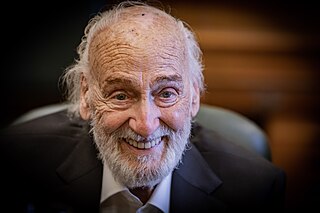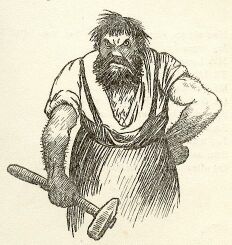A list of films produced in Argentina in 1982. In 1982 the Falklands War meant film production was lower than usual:
| Title | Director | Release | Genre |
|---|---|---|---|
| A - Z | |||
| El agujero en la pared | David José Kohon | 3 June | Drama |
| Las aventuras de los Parchís | Adrián Quiroga | 15 June | |
| La casa de las siete tumbas | Pedro Stocki | 25 March | |
| Desafío al coraje | Julio Garven | 16 April | |
| Fiebre amarilla | Javier Torre | 18 March | History |
| Los Fierecillos indomables | Enrique Carreras | 15 July | |
| Inti Anti, camino al sol | Juan Schröder | 7 October | |
| La invitación | Manuel Antín | 30 September | |
| J - Z | |||
| Mafalda | Carlos Márquez | 3 December | Animated |
| La magia de Los Parchís | Adrián Quiroga | 7 January | |
| Los pasajeros del jardín | Alejandro Doria | 20 May | Drama |
| Plata dulce | Fernando Ayala | 8 July | comedy |
| Prima Rock | Osvaldo Andéchaga | 2 December | Musical |
| Pubis angelical | Raúl de la Torre | 12 August | Drama |
| Señora de Nadie | María Luisa Bemberg | 1 April | Drama |
| ¿Somos? | Carlos Hugo Christensen | 2 September | |
| Un terceto peculiar | Hugo Sofovich | 4 March | Comedia |
| Últimos días de la víctima | Adolfo Aristarain | 8 April | Thriller |
| Volver | David Lipszyc | 5 August | |

The Falklands War was a ten-week undeclared war between Argentina and the United Kingdom in 1982 over two British dependent territories in the South Atlantic: the Falkland Islands and its territorial dependency, South Georgia and the South Sandwich Islands. The conflict began on 2 April 1982, when Argentina invaded and occupied the Falkland Islands, followed by the invasion of South Georgia the next day. On 5 April, the British government dispatched a naval task force to engage the Argentine Navy and Air Force before making an amphibious assault on the islands. The conflict lasted 74 days and ended with an Argentine surrender on 14 June, returning the islands to British control. In total, 649 Argentine military personnel, 255 British military personnel, and three Falkland Islanders were killed during the hostilities.

1982 (MCMLXXXII) was a common year starting on Friday of the Gregorian calendar, the 1982nd year of the Common Era (CE) and Anno Domini (AD) designations, the 982nd year of the 2nd millennium, the 82nd year of the 20th century, and the 3rd year of the 1980s decade.

Osvaldo César Ardiles, often referred to in Britain as Ossie Ardiles, is an Argentine football manager, pundit and former midfielder who won the 1978 FIFA World Cup as part of the Argentina national team.

Tango is a partner dance and social dance that originated in the 1880s along the Río de la Plata, the natural border between Argentina and Uruguay. The tango was born in the impoverished port areas of these countries from a combination of Argentine Milonga, Spanish-Cuban Habanera, and Uruguayan Candombe celebrations. It was frequently practiced in the brothels and bars of ports, where business owners employed bands to entertain their patrons. It then spread to the rest of the world. Many variations of this dance currently exist around the world.

Puerto Madryn, usually known as Madryn, is a city in the province of Chubut in Argentine Patagonia. It is the capital of the Viedma Department, and has about 103,175 inhabitants according to the last census in 2022.

Héctor Eduardo Babenco was an Argentine-Brazilian film director, screenwriter, producer and actor who worked in several countries including Brazil, Argentina, and the United States. He was one of the first Brazilian filmmakers to gain international critical acclaim, through his films which often dealt with social outcasts on the fringes of society. His best-known works include Pixote (1980), Kiss of the Spider Woman (1985), Ironweed (1987), At Play in the Fields of the Lord (1990) and Carandiru (2003).

The National Reorganization Process was the military dictatorship that ruled Argentina from 1976 to 1983, which received support from the United States until 1982. In Argentina it is often known simply as the última junta militar, última dictadura militar or última dictadura cívico-militar, because there have been several in the country's history and no others since it ended.

Héctor Benjamín Alterio Onorato is an Argentine theatre, film and television actor, well known both in Argentina and Spain.
In art, neorealism refers to a few movements.

HMS Endurance was a Royal Navy ice patrol vessel that served from 1967 to 1991. She came to public notice when she was involved in the Falklands War of 1982. The final surrender of the war, in the South Sandwich Islands, took place aboard Endurance.

Cinema of Argentina refers to the film industry based in Argentina. The Argentine cinema comprises the art of film and creative movies made within the nation of Argentina or by Argentine filmmakers abroad.
The cultural impact of the Falklands War spanned several media in both Britain and Argentina. A number of films and television productions emerged from the conflict. The first Argentine film about the war was Los chicos de la guerra in 1984. The BBC drama Tumbledown (1988) tells the story of a British officer paralysed from a bullet wound. The computer game Harrier Attack (1983) and the naval strategy game Strike Fleet (1987) are two examples of Falklands-related games. A number of fictional works were set during the Falklands War, including in Stephen King's novella The Langoliers (1990), in which the character Nick Hopewell is a Falklands veteran. The war provided a wealth of material for non-fiction writers; in the United Kingdom (UK) an important account became Max Hastings and Simon Jenkins' The Battle for the Falklands.
This is an index to pages listing Argentine films ordered by year of release. For an A-Z list, see Category:Argentine films.

Olga Zubarry was a Argentine actress who appeared in film between 1943 and 1997. She made over 60 appearances in film, spanning six decades of Argentine cinema, but is best known for her work during the Golden Age of Argentine Cinema. Throughout the course of her career, she received four Silver Condor Awards, two Martín Fierro Awards, a Konex Foundation Award and several others for her films and television performances. She is credited with starring in the first film in Argentina which featured nudity, though only her back was shown and she stated repeatedly that she wore a flesh-colored mesh and was not truly nude.

The cinema of Paraguay has historically been small. However, this has begun to change in recent years with films like El Toque del Oboe (1998); María Escobar (2002); O Amigo Dunor (2005), which competed for Best Movie in the Rotterdam International Film Festival; Hamaca Paraguaya (2006), which was screened at the Cannes Film Festival, gaining critical acclaim both in Paraguay and abroad; 7 cajas (2012); Latas Vacías (2014); and Luna de Cigarras (2014).

Verónico Cruz is a 1988 Argentine and British drama film. The motion picture is directed by Miguel Pereira, his first, and written by Pereira and Eduardo Leiva Muller. The movie was produced by Julio Lencina and Sasha Menocki and features Juan José Camero, Gonzalo Morales, among others. The author of the book, Fortunato Ramos, appears in the film in the opening scenes as Verónico's father.

Alejandro Doria was a noted Argentine cinema and television director.

Ferreyra is a surname meaning 'smith'. Notable people with the surname include:
Last Days of the Victim is a 1982 Argentine crime thriller film directed by Adolfo Aristarain and starring Federico Luppi. It was written by Aristarain and José Pablo Feinmann, and based on Feinmann's classic novel of the same name. The film was selected as the Argentine entry for the Best Foreign Language Film at the 55th Academy Awards, but was not accepted as a nominee.
Two to Tango, also known as Matar es morir un poco, is a 1989 American-Argentine suspense film directed by Héctor Olivera and based on the classic novel Last Days of the Victim by José Pablo Feinmann, who also co-wrote the screenplay. It was one in a number of ten movies Roger Corman produced in Argentina during the 1980s.